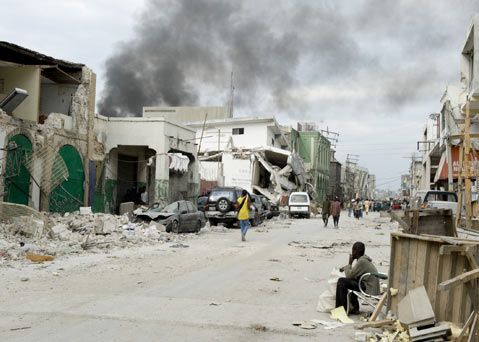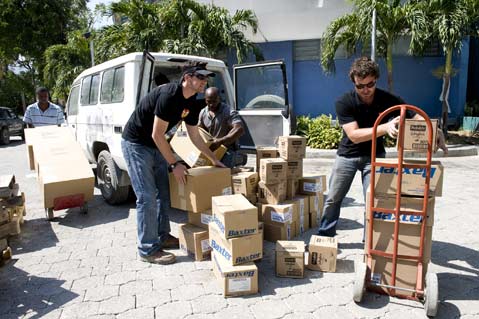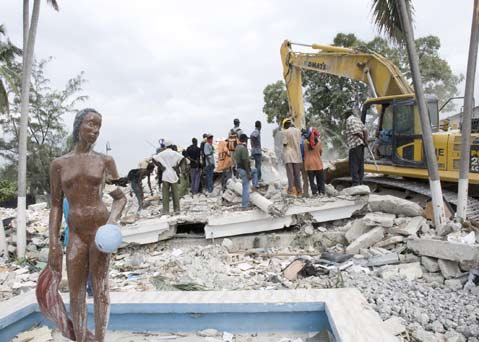Haiti Not Forgotten
Local Aid Organization Continues to Help Devastated Caribbean Country

Direct Relief International (DRI) — a Santa Barbara-based nongovernmental organization that has been providing medical supplies to needy communities domestically and abroad for over 60 years — has been an integral part of Haiti’s recovery since the January earthquake. Workers in the devastated Caribbean nation have witnessed firsthand both the difficulties and the progress of the last six months, and while Haiti’s troubles have been mostly absent in the media recently, there is still much more to be done.
“It’s still an unfolding tragedy,” CEO Thomas Tighe said on Thursday during DRI’s progress briefing. “People get fully occupied with all they can digest about Haiti, and then it’s on to something else. It’s hard to sustain that level of attention, because it was white hot, but it doesn’t mean that the conditions have changed or are better. There are still millions of people living in a very fragile situation.”

DRI puts the death toll at about 230,000, and the amount of people living in temporary shelters at 1.5 million, or half of Port-au-Prince’s population. “You’re kind of overwhelmed to see 60,000 people living on a golf course. It’s sort of hard to grasp what it looks like,” Tighe said. “They were in a deep hole to begin with, and now it’s even deeper.”
What made matters worse for Haiti was that although countries and organizations all over the world provided aid, there were serious problems in delivering those supplies because of the state of the country’s infrastructure. “In the early days it was literally the wild west,” said Emergency Preparedness and Response Director Brett Williams. “Everything was on the tarmac. You could go grab it if you wanted to, you could leave it if you wanted to — it was one of those things where things are needed and time is of the essence, and there’s a huge amount of waste. It’s an unfortunate byproduct of goodwill.”
However, DRI set up its own distribution system in Haiti to ensure its $45.4 million worth of supplies and medications were being received by those who needed it. The nonprofit partnered up with local health-care providers to provide them with only necessary supplies. Williams said it’s important to not clog the channels with nonessential items in an emergency. “We really pride ourselves on only sending the things the health facilities are asking for.”

DRI’s focus now is not just repairing the damage, but preparing for further disasters and providing long-term solutions. As they have done previously in Haiti and throughout the Caribbean, DRI workers are creating “Hurricane Preparedness Modules” to deal with the potential medical problems if Haiti is hit by a hurricane. In addition, they are committing $2 million in funds for rehabilitative and prosthetic services for the thousands in Haiti who lost or damaged limbs in the earthquake and will need medical assistance for the rest of their lives.
The NGO is also supporting services in Haiti that are not necessarily of a medical nature. According to Andrew MacCalla, they have set aside $500,000 for Haitian community organizations ranging from schools to clinics to psychosocial support programs. “We were afraid none of these groups were going to get any of the proposed $5 billion for Haiti,” he said. However, the program has proves to be popular, and since its inception, they have received more than 50 applications from local organizations.
“We’ve had success. Everything that has been sent to Haiti has been delivered to the site that it’s used,” Tighe said, but he noted that Haiti is a long way from full recovery, and further support is needed. “There are some areas to be hopeful about, but it’s still a very dire situation for millions of people.”


